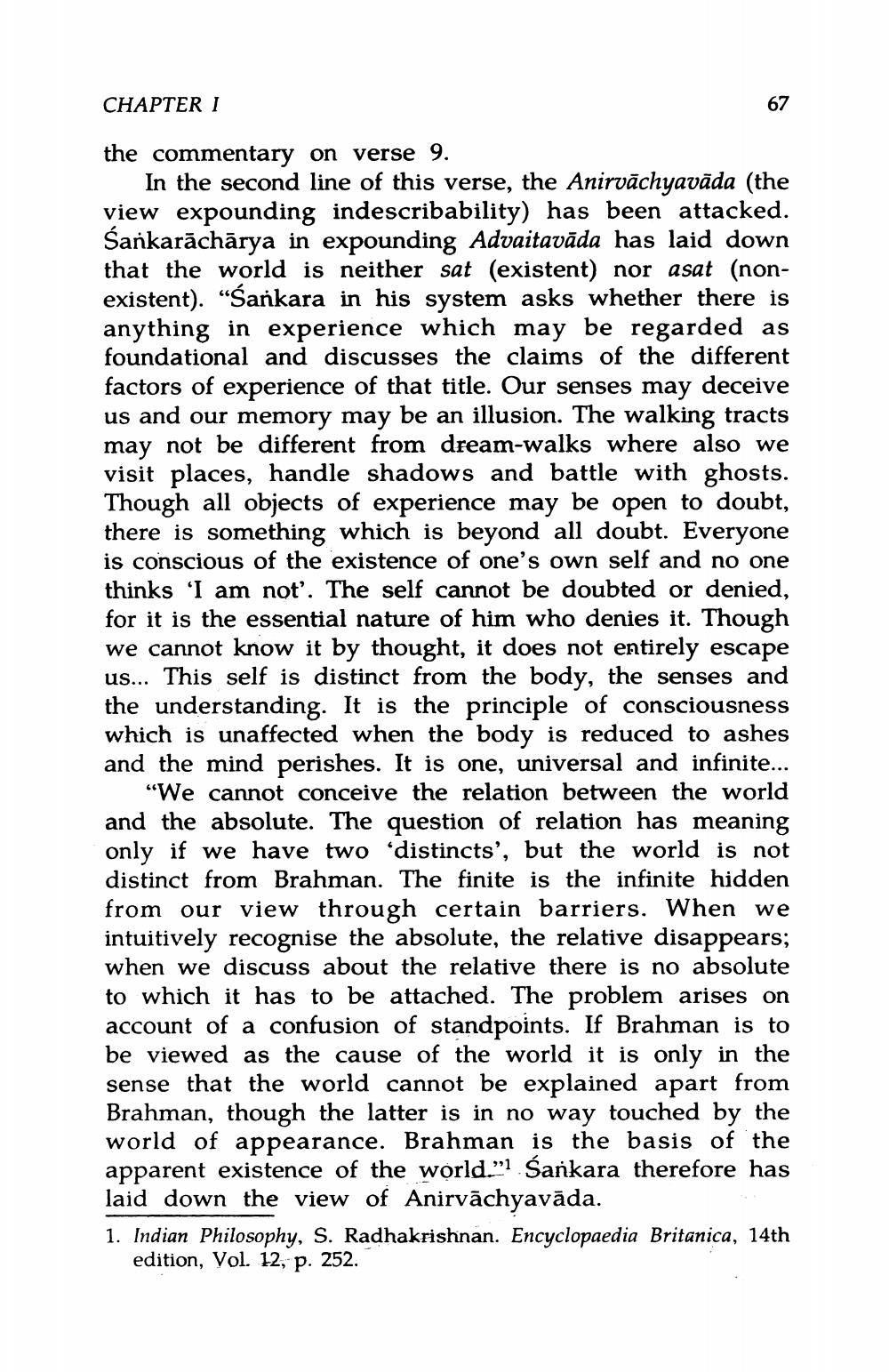________________
CHAPTER I
the commentary on verse 9.
In the second line of this verse, the Anirvachyavāda (the view expounding indescribability) has been attacked. Sankaracharya in expounding Advaitavāda has laid down
that the world is neither sat (existent) nor asat (nonexistent). "Śankara in his system asks whether there is anything in experience which may be regarded as foundational and discusses the claims of the different factors of experience of that title. Our senses may deceive us and our memory may be an illusion. The walking tracts may not be different from dream-walks where also we visit places, handle shadows and battle with ghosts. Though all objects of experience may be open to doubt, there is something which is beyond all doubt. Everyone is conscious of the existence of one's own self and no one thinks I am not'. The self cannot be doubted or denied, for it is the essential nature of him who denies it. Though we cannot know it by thought, it does not entirely escape us... This self is distinct from the body, the senses and the understanding. It is the principle of consciousness which is unaffected when the body is reduced to ashes and the mind perishes. It is one, universal and infinite...
"We cannot conceive the relation between the world and the absolute. The question of relation has meaning only if we have two 'distincts', but the world is not distinct from Brahman. The finite is the infinite hidden from our view through certain barriers. When we intuitively recognise the absolute, the relative disappears; when we discuss about the relative there is no absolute to which it has to be attached. The problem arises on account of a confusion of standpoints. If Brahman is to be viewed as the cause of the world it is only in the sense that the world cannot be explained apart from Brahman, though the latter is in no way touched by the world of appearance. Brahman is the basis of the apparent existence of the world." Śankara therefore has laid down the view of Anirvāchyavāda.
67
1. Indian Philosophy, S. Radhakrishnan. Encyclopaedia Britanica, 14th edition, Vol. 12, p. 252.




